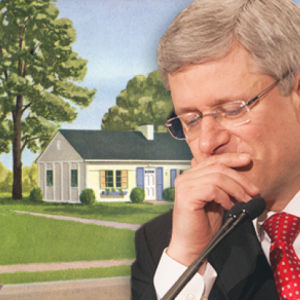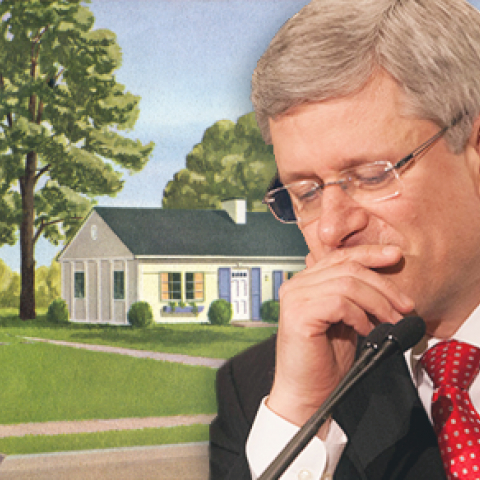
One-third of Canadians say they have “fallen behind” under Stephen Harper
How are Canadians feeling about their financial situation? A recently released EKOS poll found 34% of Canadians — a little over one-third of those polled — say they’ve “fallen behind” over the last year: Only 18% say they’ve “moved ahead.” (In other words, nearly double say that things are getting worse instead of getting better.) And more troubling […]
How are Canadians feeling about their financial situation?
A recently released EKOS poll found 34% of Canadians — a little over one-third of those polled — say they’ve “fallen behind” over the last year:
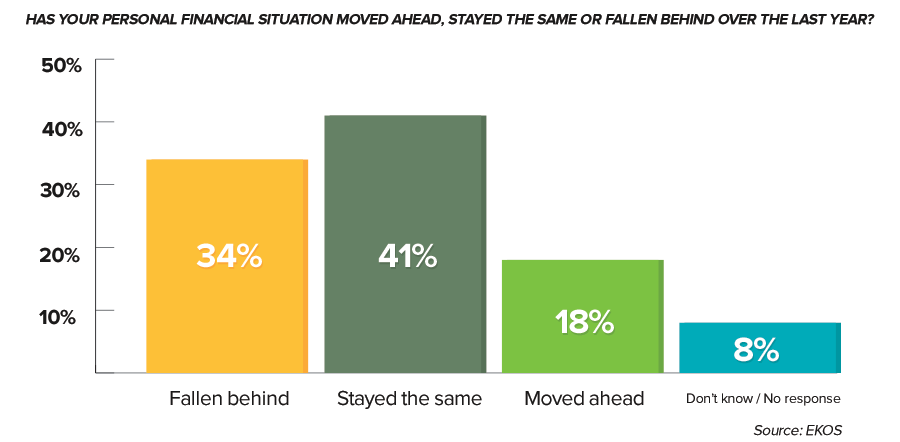
Only 18% say they’ve “moved ahead.” (In other words, nearly double say that things are getting worse instead of getting better.)
And more troubling for Harper’s Conservatives? The same poll found one-third of respondents feel they’ve fallen behind over the last five and last ten years (the Tories have been in office since 2006).
Why do Canadians feel like they’ve “fallen behind”? Here are five factors that could explain things:
1. Canadians haven’t seen a meaningful wage increase in six years
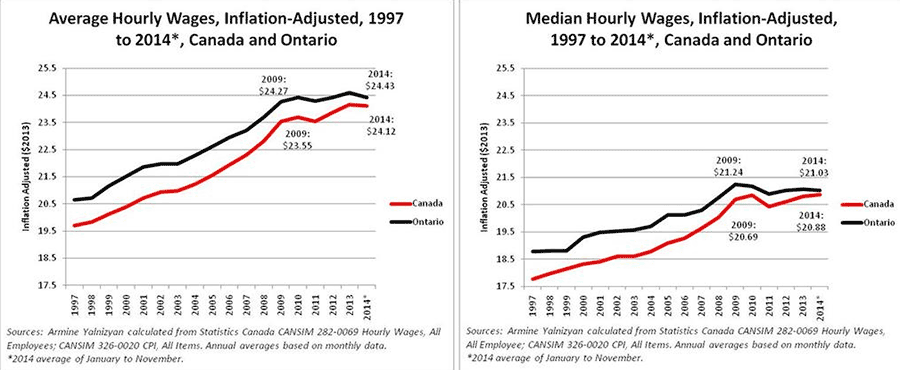
And, since 2000, the number of Canadians working for minimum wage has doubled.
2. Temporary & part-time jobs?
Involuntary part-time and temporary employment remain very high, according to a late-2014 report by a TD Bank senior economist.
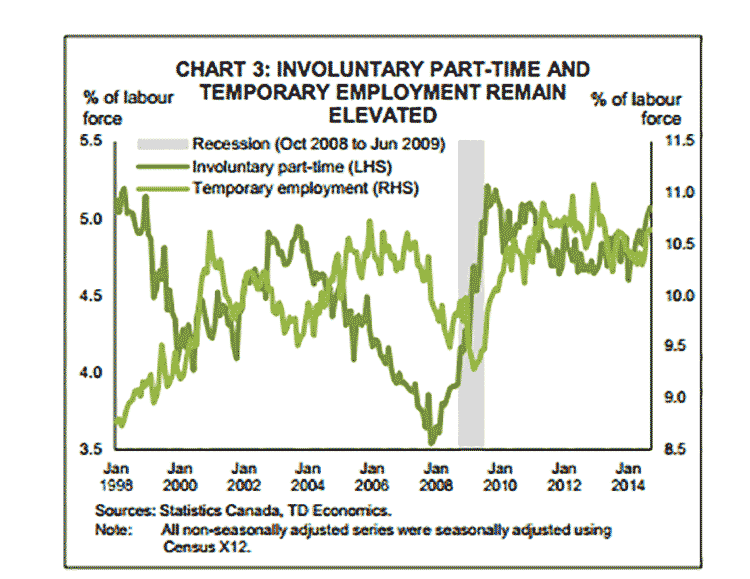
Canada only created 32,000 permanent jobs in 2014. Meanwhile, the country saw temporary jobs increase by 110,000 over the same time period – highlighting the continued instability of our labour force.
Oh, and the working-age population is outpacing employment growth. Although Canadian employment grew by 1% last year, our working-age population grew by 1.2%. And while Canada’s unemployment rate dipped by 0.6%, the proportion of Canadians who actually had jobs fell from 61.6% to 61.5%.
3. Canada’s household debt burden is outpacing most developed countries
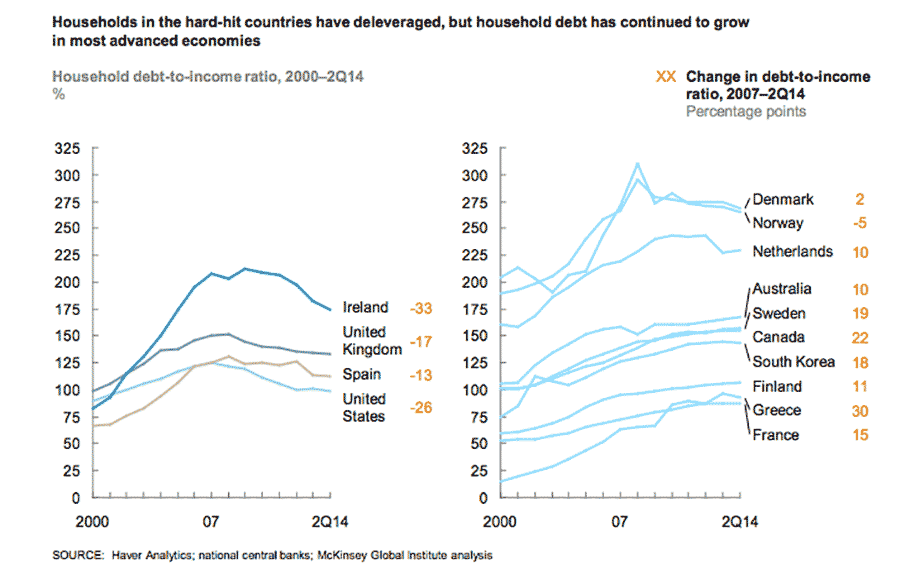
4. Low-income jobs are growing, high-income jobs are falling
Overall, 38% of the new jobs created between 2006 and 2014 have been in sales and service occupations, the lowest wage category — and typically the most precarious with fewest benefits. The total number of Canadians employed in that category has risen by 532,000 since 2006. That accounts for 37.8% of the jobs created since Harper took office — approximately 4 out of 10 jobs. (That increase was matched by a decline in the highest wage categories.)
A November TD Bank analysis shows the long-term rise in non-tradable jobs, a group that includes service and retail:
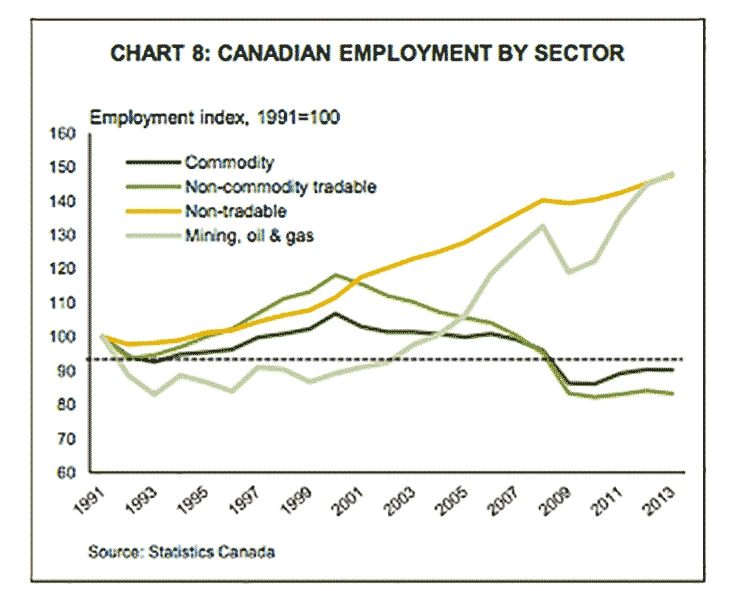
5. Canada is increasingly becoming a country of haves and have-nots
In 2012, the median net worth of the top 10% was $2,103,200 — rising by $620,600 (41.9%) since 2005. Meanwhile, the median net worth of the bottom 10% was negative $5,100 in 2012 — dropping more than 150% since 2005.
This is what that distribution of wealth looks like:

Of course, the 30-year income explosion for Canada’s top 1% hasn’t helped matters.
BONUS: “the closer you look, the worse the unemployment numbers” get
TD Bank sums up the Canadian unemployment picture by factoring in “labour underutilization” — which add involuntary part-timers to the mix of unemployed with discouraged searchers.
You couldn’t name this chart better even if you tried:

Photo: Jenosale. Used under Creative Commons licence.
Our journalism is powered by readers like you.
We’re an award-winning non-profit news organization that covers topics like social and economic inequality, big business and labour, and right-wing extremism.
Help us build so we can bring to light stories that don’t get the attention they deserve from Canada’s big corporate media outlets.
Donate

